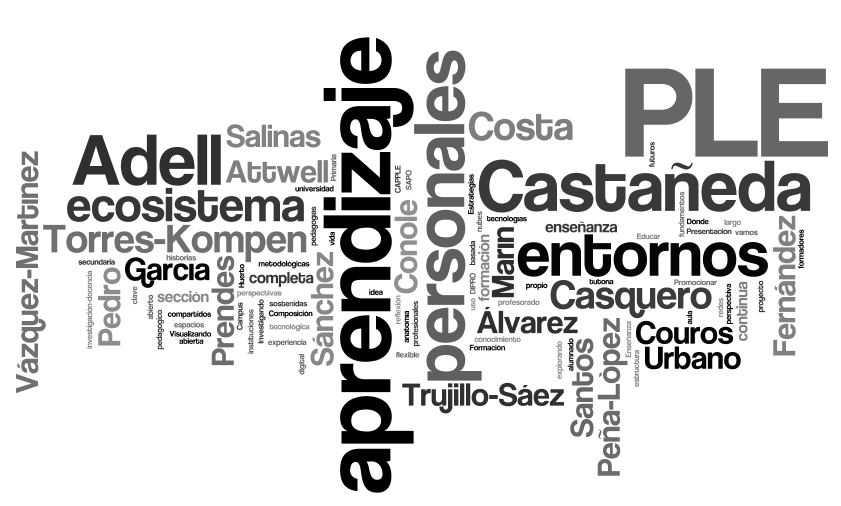Personal Learning Environments (in Spanish)
My Spanish is (very) poor. But I am proud to have a chapter, ¿Dónde vamos con los entornos personales de aprendizaje? , in the newly published and free Spanish language book on Perosnal Learning Environments, ” Entornos personales de aprendizaje: claves para el ecosistema educativo en red“edited by Linda Castañeda and Jordi Adell. The book which can be downloaded in PDF format as chapters or as a whole from the book website is 192 pages long and contains contributions from such august authors as Jesús Salinas, Ricardo Torres Kompen, Cristina Costa, Ismael Peña-López, Carlos Santos, Luis Pedro, Alec Couros and Gráinne Conole, amongst others.
In their introduction (according to Google translate) Linda Castañeda and Jose Adell say:
The interest of Personal Learning Environments (PLE, for its acronym in English) is not so much in its conceptual or technological innovation, as in the assumption of a perspective on education that seeks to respond to massive technological and cultural change that has taken place in the last two decades in our society.
From our perspective, the issue of PLE is a node, and hopefully a turning point, at the crossroads of thought, discussion and practice on what to learn and how to learn-and teach-in early XXI century. A magnificent opportunity to reflect on how to alleviate poverty didactic supposedly disruptive initiatives (such as xMOOCs) or how to integrate technology in formal learning beyond providing digital study materials to students. If the PLE are “learning to learn with technology,” PLEs integrate in education is to help develop skills essential in a complex and changing world like ours.
However, reflection and debate on this topic has developed far more informal areas of the blogosphere that the traditional channels of research dissemination (journals and conferences) and, occasionally, with an orientation so excessively so overly technological or philosophical offered with few ideas applicable to everyday educational practice.
This book aims to give the reader an introduction to the concept of ecosystem PLE and pedagogical ideas underpinning it, plus some relevant experiences that exemplify how it can be used in practice in all levels of education and how research is approached from different PLEs perspectives.
There is not a book for experts or, at least, that was not our intention, but we believe that the expert will find it inspiring things. We intend to be an introductory book with a close but rigorous style that offers a modern perspective of the subject without forgetting that pedagogy takes some time exploring these roads.

